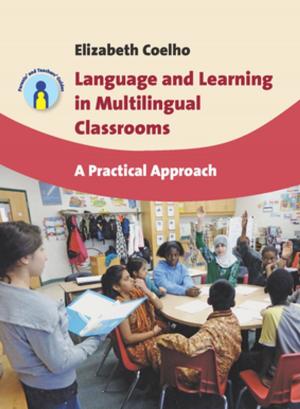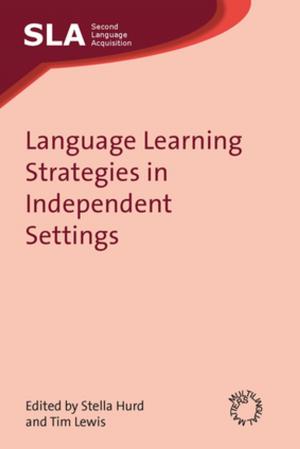Connecting Language and Disciplinary Knowledge in English for Specific Purposes
Case Studies in Law
Nonfiction, Reference & Language, Law, General Practice, Study Aids, ESL, Foreign Languages| Author: | Alissa J. Hartig | ISBN: | 9781783098521 |
| Publisher: | Channel View Publications | Publication: | August 11, 2017 |
| Imprint: | Multilingual Matters | Language: | English |
| Author: | Alissa J. Hartig |
| ISBN: | 9781783098521 |
| Publisher: | Channel View Publications |
| Publication: | August 11, 2017 |
| Imprint: | Multilingual Matters |
| Language: | English |
How are language and disciplinary knowledge connected in the English for Legal Purposes (ELP) classroom, and how far should ELP practitioners go in supporting students’ acquisition of the conceptual frameworks that shape the genres they are learning? This book presents a pedagogical model for incorporating these conceptual frameworks into disciplinary language instruction and follows four focal participants as they learn to read and write new genres in a second language and disciplinary culture. By examining not just students’ written texts, but also their reading practices and interactions in class and in tutoring sessions, the book traces the ways in which disciplinary knowledge and language interact as students develop academic literacy in a new disciplinary community. Throughout the book, the discipline of law is used as a lens for examining broader connections between language, culture and disciplinary knowledge, and their relevance for English for Specific Purposes and writing in the disciplines.
How are language and disciplinary knowledge connected in the English for Legal Purposes (ELP) classroom, and how far should ELP practitioners go in supporting students’ acquisition of the conceptual frameworks that shape the genres they are learning? This book presents a pedagogical model for incorporating these conceptual frameworks into disciplinary language instruction and follows four focal participants as they learn to read and write new genres in a second language and disciplinary culture. By examining not just students’ written texts, but also their reading practices and interactions in class and in tutoring sessions, the book traces the ways in which disciplinary knowledge and language interact as students develop academic literacy in a new disciplinary community. Throughout the book, the discipline of law is used as a lens for examining broader connections between language, culture and disciplinary knowledge, and their relevance for English for Specific Purposes and writing in the disciplines.















